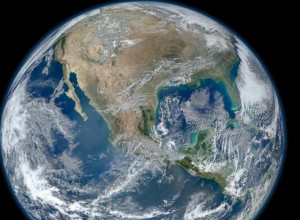By Frank Stabile

Evolution is often touted as the greatest theory in biology. Decades of experiments and observations have consistently supported evolutionary theory. Despite this success, public understanding of evolution is patchy at best and nonexistent at worst. The biological community has put much effort into explaining evolution, but many misconceptions remain popular. Some are blatant and silly, such as the suggestion that monkeys should not exist today if humans evolved from monkeys (which is wrong at least twice).
Thankfully, this type of extensive misconception is rare. Most misunderstandings tend to be more subtle and complex, and consequently more important. Here, I briefly examine three misconceptions that are particularly incorrect and painfully prevalent.
Evolution is only a theory. This statement is actually true. The problem lies in the word choice and the tone in which this sentence is typically delivered. The use of words like “only” or “just” implies that evolution is more uncertain because it is a theory. This insinuation stems from a difference between the colloquial and scientific meanings of the word “theory.” Locally, a theory usually means one possible explanation for a group of facts that may or may not be true. With this definition, all theories are roughly equivalent. Scientifically, a theory is a substantiated explanation that has withstood experiment after experiment and successfully models an aspect of the natural world. In this way, the scientific definition is far less egalitarian. The existence of a scientific theory entails that most if not all other explanations are significantly weaker. Thus, highlighting the theory portion of evolutionary theory reveals a foundation of concrete rather than sand. As many have said before, gravity is only a theory, too.
Evolution has a goal. Unlike the previous misconception, this error takes two forms, both of which are surreptitious. The first form is language. The words used to describe evolution frequently imply agency or volition. Even in scientific settings, one often hears sentences that begin with “Evolution wants” or “Evolution will not allow.”
The second, more obvious form is the idea that evolution has a goal, like the formation of the human brain. Talk of this kind also ascribes a will to evolution. The problem is that the process of evolutionary change is just that — a process, unconscious and unfeeling. To say that evolution has wishes or goals is to attribute to the theory traits it inherently lacks. To steal from physics again, discussions about the desires of gravity, would be obviously absurd. Yet somehow, this type of error persists with evolution. One argument is that explaining evolution in this way makes it easier to understand. I posit, however, that language and ideas of this kind do more harm than good and are best struck from the vocabulary of evolutionary biology.
Humans are special. This final issue is linked to the previous one and is not so much a misunderstanding as it is a resistance. Most people have probably heard some form of the following idea: There are animals and then there’s us. Humans and animals exist on separate planes, with humans clearly elevated thanks to our intelligence and rationality. Although those qualities may be debatable, the main idea is that humans are exempt from membership in the animal community. Evolution, on the other hand, says exactly the opposite. Humans are a part of the natural world and are affected by evolution like any other organism, from bacterium to fern to bird. In this way, we are not at all special.
This conclusion, which directly contradicts the conventional wisdom about humanity, naturally leads to resistance and discomfort. However, such feelings suggest that humanity’s place in the tree of life is a form of degradation. Rather, evolution simultaneously reveals our connection to the natural world and reminds us that we are susceptible to the same threats and behaviors that our animal counterparts experience.
The theory of evolution is much more than good science. It is a beautiful depiction of the connections between all life on the planet. Unfortunately, misconceptions prevent many people from seeing this beauty and the biological community has a responsibility to continue to explain evolution to the public. The three problems described here are only a few examples of the misunderstandings that still plague evolution. Hopefully, with persistent effort and enthusiasm, the understanding of evolution will continuously grow as crazed attempts to remove it from the public sphere deteriorate.






